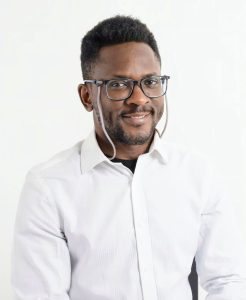

By Stephen Adeleye

Across continents, a quiet transformation is taking place—one that is not driven by noise, but by necessity. As the world faces rising rates of burnout, anxiety, and emotional exhaustion, new voices are emerging to reimagine how we approach mental wellbeing. One of those voices belongs to Dr. Kennedy Oberhiri Obohwemu, a Nigerian-born medical doctor and academic whose groundbreaking work is reshaping the very language of coping and resilience.
Dr. Obohwemu, now based in the United Kingdom, has introduced a powerful new psychological tool: the Self-Comforting and Coping Scale (SCCS). It is the first comprehensive instrument of its kind, designed to measure how people comfort themselves during times of emotional distress. Alongside it, he proposes a new theoretical framework—the Self-Comforting and Coping Theory (SCCT)—which explores how these self-soothing behaviours directly influence our ability to manage stress and rebuild emotional strength.
But this is more than a scientific breakthrough. It is a cultural moment.
For generations, the African diaspora has relied on deeply rooted traditions of self-preservation—often in the absence of formal psychological support. From silent resilience to spiritual practices, from music to movement, from community storytelling to solitude, African and Afro-descendant communities have always found ways to hold themselves together, even when the world threatened to pull them apart.
Yet these forms of coping—so rich, so personal, so profound—have rarely been included in mainstream mental health research. Until now.
Dr. Obohwemu’s work validates what many have known instinctively: that emotional survival is a science of the soul, not just the mind. And that coping is not one-size-fits-all—it is shaped by culture, context, and collective memory.
At a time when most psychological models are still rooted in Euro-American paradigms, the SCCS dares to ask different questions. What does self-comfort look like in a Nigerian home where therapy isn’t common? What does emotional regulation feel like for a Black immigrant juggling identity, survival, and ambition in a foreign land? What tools do people use when they have no tools at all—only instinct and inner strength?
These are not theoretical questions. They are the questions of our time. And they deserve answers grounded in real experience.
In highlighting 13 distinct types of self-comforting behaviour, including mindfulness, self-compassion, and reframing of thoughts, the SCCS not only gives language to these behaviours—it gives them legitimacy. It invites psychologists, educators, employers, and policymakers to rethink what resilience really looks like.
It says: listen to the whisper of the self-soother, not just the cry for help.
As trials continue (ISRCTN12254719), and as researchers around the world take note, Dr. Obohwemu’s work represents a new kind of leadership—one rooted in diasporic perspective, but global in reach.
And that matters deeply.
Because innovation from the African diaspora has always been more than technical; it is philosophical. It challenges the systems that leave people out. It brings fresh perspective where tradition has grown stale. It refuses to separate knowledge from humanity.
Dr. Obohwemu’s SCCS is not just a new psychometric scale—it’s an invitation to see mental health through a wider lens. A lens that includes us.
In a world where so much healing still needs to happen, this contribution is more than welcome—it’s essential.
Stephen Adeleye is a writer and mental health commentator exploring the intersections of African identity, science, and emotional wellbeing.


